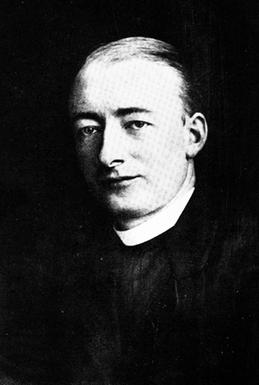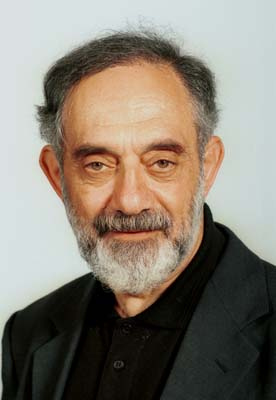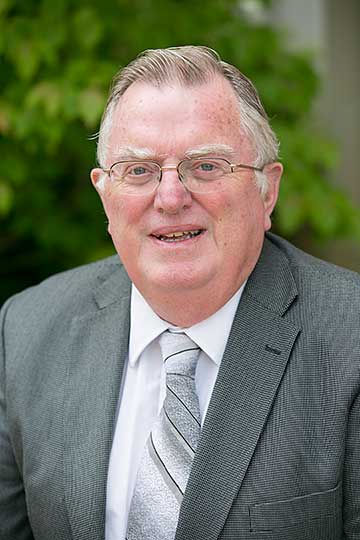Hello and welcome. In this article, we'll be documenting comments made by various theologians and church historians on the development of original sin in Christian history. The issue of the fall and its potential consequences is something we've already covered at great length. To get a primer on this, see our article here which goes over our perspective called ancestral sin which is distinct from original sin. To look at all of our articles that talk about the doctrine of original sin, see here.
THE SIN OF ADAM AND ITS POTENTIAL CONSEQUENCES FOR HUMANITY
1. Human mortality
2. Humanity having an inclination and predisposition to personal sin which inevitably leads to personal guilt
3. A fallen world with pain, suffering, and corruption
4. All humans from conception being held guilty in God's sight for Adam's sin
To briefly summarize the main perspectives on the fall's consequences, the affirmation of consequences 1-3 is ancestral sin. This article will focus on the affirmation of consequences 1-4, which is commonly termed original sin.
THEOLOGIANS AND CHURCH HISTORIANS
ON THE DEVELOPMENT OF ORIGINAL SIN
“I have already remarked upon the historical fact, that the recognition of Original Sin, considered as the consequence of Adam's fall, was, both as regards general acceptance and accurate understanding, a gradual process, not completed till the time of Augustine and Pelagius.” - John Henry Newman, Development of Christian Doctrine, Chapter 4, Section 1.2
“The Greek fathers had no clear conception of original sin. According to the Pelagian Julian of Eclanum, Chrysostom taught: We baptize children, though they are not stained with sin, in order that holiness, righteousness, sonship, inheritance, and brotherhood may be imparted to them through Christ.” - Schaff, History of the Christian Church, § 92, p. 1870
“Before Augustine the anthropology of the church was exceedingly crude and indefinite. There was a general agreement as to the apostasy and the moral accountability of man, the terrible curse of sin, and the necessity of redeeming grace; but not as to the extent of native corruption,” - Schaff, History of the Christian Church, § 146, p. 2084
“This is the declaration of Athanasius. The sum of the consequences of Adam’s fall is made to consist in the dominion of Satan, in mortality, and the increased exposure to the seductions of evil. Yet by the Greek Fathers the reign of sin in mankind is depicted in strong colors. This is true, for example, of Athanasius; and there are passages in Gregory of Nyssa which, were they all that this author says on the subject, might lead us to infer that he held to an inherited sinful depravity, involving guilt. But such was not the fact.” - Fisher, History of Christian Doctrine, p. 164
“Gregory of Nyssa, Gregory of Nazianzum, Basil, and Chrysostom pronounce new-born children free from sin. It may seem difficult to reconcile passages like these just referred to with other utterances found in the same teachers. In passages of a different tenor, however, they have in mind a corruption that does not involve guilt.” - Fisher, History of Christian Doctrine, p. 165
“It is only natural that this difference should be made, for the Eastern Church has always held a milder view of the effect of the Fall than that which has been current in the West since the days of Augustine; and, indeed, Cassian, in making his protest against the rising tide of Augustinianism, was in the main only handing on the teaching which he had received from his Eastern instructors.” - Gibson, The Works of John Cassian, Prolegomena, Chapter I
“Our study of these primitive Greek-Christian writers has thus revealed, gradually taking shape within the Catholic Church of the late second century, an interpretation of the Fall-doctrine which….As held by the Apologists, it would seem to have contained no hint of the conception of ‘Original Guilt "—a conception which presents equal difficulties to a reasoned faith in the Divine justice, whether the supposed ‘guilt’’ be regarded as accountability for the sin of a remote ancestor or accountability for the possession of instincts which we cannot help possessing.” - Williams, The Ideas of the Fall and of Original Sin, p. 199-200
“Again, for a Christian of the very first centuries original sin was not in the foreground; on the contrary, the redemption was the fundamental assertion. Thus it was that the redemption, bound up with sin, did not have with original sin as such the link that St. Augustine or St. Anselm will later emphasize.” - Rondet, Original Sin, p. 25“In fine, for the Christians of this early period, so important in the history of Christian dogma, the first Adam gives way before the radiance of him whom St. Paul names the second Adam. Christ is at the centre of the faith. He died to give us life, to deliver us from our sins, to wrest us from death and from the grasp of Satan. But in this consideration of sinful humanity one does not dream of throwing into special relief the sin of Adam, nor our solidarity with him; still less does one think of commenting on the primitive state of man.” - Rondet, Original Sin, p. 27
“The diversity of interpretations of (eph' hō) among the Greek Fathers which we have just reviewed contrasts sharply with the uniformity of interpretation in the Latin West…each has stated unequivocally two ideas which may be taken as the barest and most fundamental consensus: first, that humanity has inherited (corruption, passion, and morality) as the consequence of Adam’s sin, entailing a doctrine of the passions as the immediate motivations for sinful behavior; and secondly, an explicit rejection of “sin of nature,” that is to say, of a transmission or inheritance of guilt, coupled with an affirmation that, whatever guilt may accrue to a person, it can only result from their own thoughts and actions. To them, such statements as “humanity sinned in Adam,” or “were made sinners by Adam’s sin,” meant that persons were liable to death on account of Adam’s sin, or that they “sinned in Adam” as partners, accomplices or collaborators through their own personal sins, not his. They did not participate in his transgression per se, nor did they inherit guilt because of it;” - Volume 29, Exegesis of Romans 5:12 Among the Greek Fathers, p. 251
“It was seen above that the Greek patristic tradition, in its conception of original sin, ignored the idea of a transmittable guilt. Adam’s sin was conceived as the beginning of a corruption of human nature manifested first of all in hereditary mortality.” - Meyendorff, Christ in Eastern Christian Thought, p. 107
“The Greek fathers, with their insistence that man’s free will remains intact and is the root of actual sinning, have a much more optimistic outlook than the West. It is easy to collect passages from their works which, at any rate in the light of later orthodoxy, appear to rule out any doctrine of original sin…Admittedly there is hardly a hint in the Greek fathers that mankind as a whole shares in Adam’s guilt, i.e. his culpability.” - JND Kelly, Early Christian Doctrines, p. 349-350
“The presuppositions of the Greek Fathers precluded any notion of universal inherited guilt of original sin. The Fathers simply could not have called Adam’s transgression the original, generic, or first sin, nor could they have imagined God imposing legal guilt for it on all human beings at the moment of their conception. The Fathers assigned responsibility solely to the transgressors: Adam and Eve.” - Romanides, The Ancestral Sin, p. 8
“For the Greek Fathers, as the consequence of Adam's sin, human beings inherited corruption, possibility, and mortality, from which they could be restored by a process of deification made possible through the redemptive work of Christ. The idea of an inheritance of sin or guilt - common in Western tradition - was foreign to this perspective, since in their view sin could only be a free, personal act.” - International Theological Commission, The hope of salvation for infants who die without being baptized, para. 11
“It is virtually an axiom of historical theology that the doctrine of original sin, as we recognize it today, cannot be traced back beyond Augustine.” - Gerald Bray, Original Sin in Patristic Thought, p. 37
"To a quite remarkable extent, the Greek Fathers carried on in their time-honoured fashion, emphasizing above all else the universal mortality which has spread as the result of Adam's sin, but steering clear of any imputation of his guilt." - Gerald Bray, Original Sin in Patristic Thought, p. 46
"From the discussion of the controversies about the problem of original sin in the East, which we have traced in these last three chapters, it seems possible to draw the following conclusion. Apart from authors such as Origen, Didymus the Blind, Isidore of Pelusium, and Hesychius of Jerusalem, whose positions are for the most part indecisive and ambiguous, the Greek Fathers opposed this doctrine from the beginning with all of their theological and pastoral authority. They felt it to be alien to the main body of orthodox belief, and therefore judged it to be heretical." - Beatrice, The Transmission of Sin, p. 219
“No theologian prior to Augustine had addressed these issues in such stark terms: most shied away from a strictly literalistic reading of the Paradise story, few spoke in terms compatible with the idea of an “original guilt,” and none saw the fall as entailing a fundamental abrogation of human freedom to avoid sin. Indeed, Augustine’s denial of humanity’s capacity to avoid sin challenged a virtual consensus among theologians of the first four centuries, who saw human beings’ freedom to choose good over evil as one of the features that most clearly distinguished Christian faith from pagan and Gnostic thought.” - McFarland, In Adam’s Fall, p. 33
“Turning now to more traditional conceptions of original sin, one major option is the affirmation of corruption in original sin without a corresponding affirmation of guilt. This was the view of early (pre-Augustinian) Christian theology.” - McCall, Against God and Nature, p. 212
“Inherited consequences is the view that all people inherit the consequences of Adam’s sin, such as a corrupt nature, mortality, and a fallen world; however, people become guilty and fall under God’s condemnation due to their own sin alone. This was the Christian position before Augustine and has been affirmed by many throughout the history of the church....Historical theologians are generally agreed that the concept of original sin as people inheriting the guilt of Adam’s sin was virtually unknown in the entire Christian tradition until the later writings of Augustine.” - Harwood, Christian Theology, p. 478-479
“Inherited moral corruption without guilt was also defended by the early Greek fathers. They eschewed Augustinian notions of inherited guilt, placing the emphasis on mortality, corruption, and sickness,” - Madueme, Original Sin and the Fall: 5 Views, p. 26
“Tertullian has a very high view of baptismal efficacy and he is quite the rigorist. But his rationale was also different from later Augustinian Paedobaptism which is associated with original sin. A lot of these earlier testimonies have an emphasis on the innocence of children which is interesting.” - How Did Infant Baptism Begin?, 40:24-40:41
“The most critical point of difference between the East and the West is the absence among the Greek-speaking theologians of the concept of inherited guilt, which is the central point of the Latin doctrine of sin. Without exception among the Greek theologians, the inheritance from Adam’s sin was mortality and corruption only. That is, the Greek fathers taught that humanity inherited Adam’s punishment, death, but not Adam’s sin. Guilt for sin could only be the result of a freely committed personal act. The Greek theologians consistently espoused the sinlessness of infants as late as John Chrysostom and Theodore of Mopsuestia, contemporaries of Augustine.” - Toews, The Story of Original Sin, Chapter 4
“The idea of original sin was incorporated into the church's doctrinal tradition by church councils of the fifth and sixth centuries.” - Wiley, Original Sin, p. 75“One error presumes that the doctrine of original sin "has always been there." At its most extreme, this is the assumption that original sin is a universal belief. Less extreme is the more common view that original sin is "in scripture." To be sure, the story of Adam and Eve is in the Hebrew Bible, Paul refers to Adam's sin, and sin is a predominant theme in both testaments. But as scripture scholars and church historians insist, the idea of original sin is a post-New Testament development.” - Wiley, Original Sin, p. 75-76
SUMMARIZING THE STATEMENTS
We will summarize the above quotes by a handful of propositional points.
1. Christians in the earliest centuries did not clearly affirm original sin
2. Original sin is largely seen as a post-Nicaea doctrinal development in the late 4th and early 5th centuries.
3. When it became prominent, original sin was most clearly seen in Latin-speaking Western Christians. It was not widely affirmed and seen among Greek-speaking Christians.
The statements made by theologians and historians on this issue corroborate and support our historical case for the doctrine of ancestral sin, which we affirm. To look at our documentation of early attestation for ancestral sin, check our article here.
Thanks for reading. That concludes this article.



.png)
















No comments:
Post a Comment